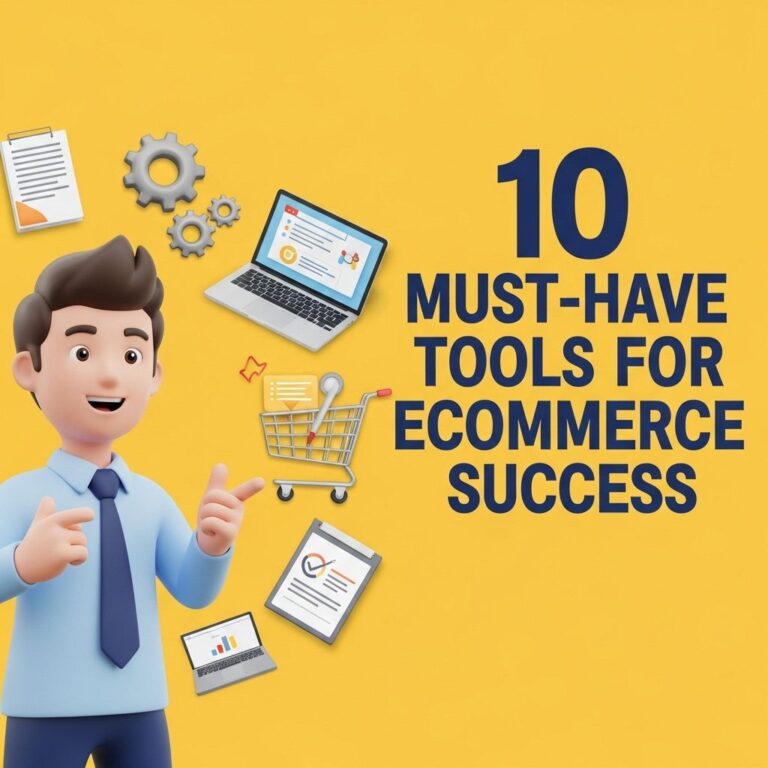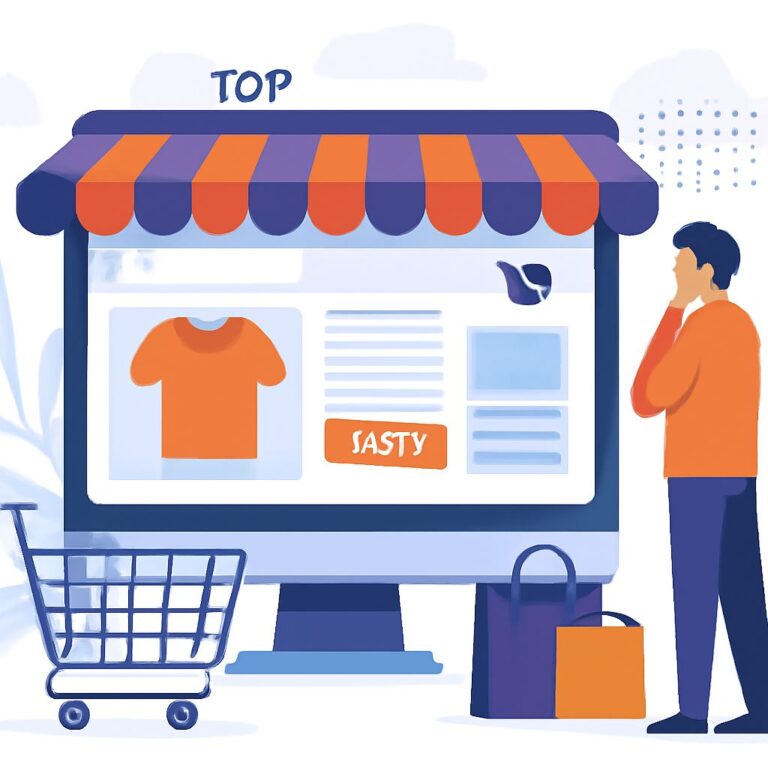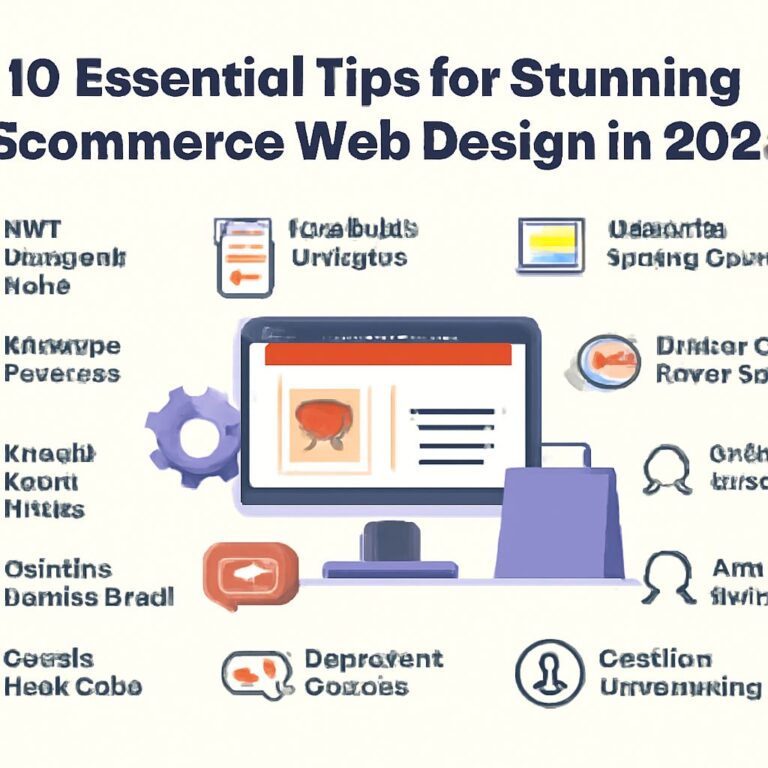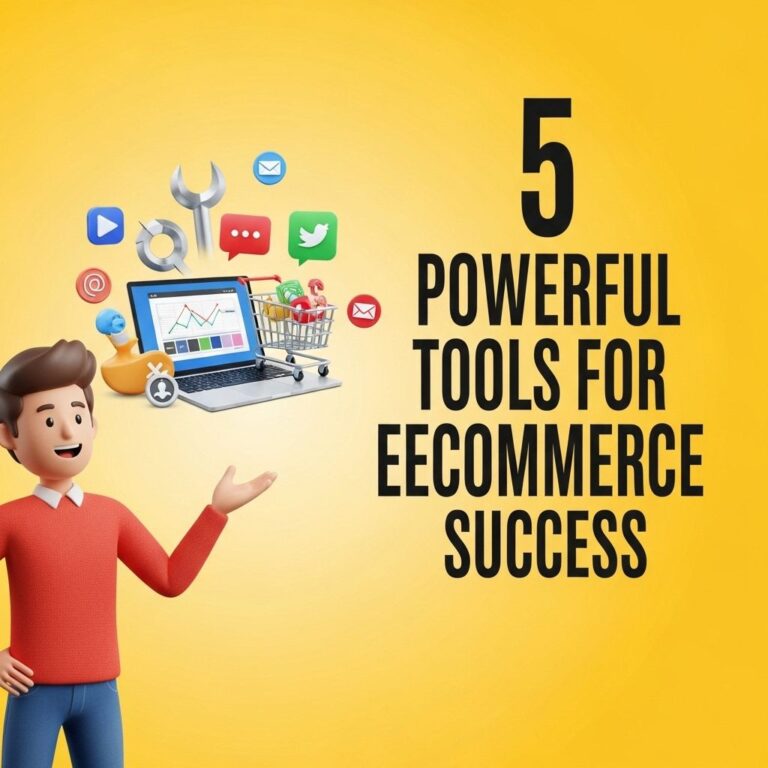In the rapidly evolving world of ecommerce, having the right tools at your disposal is crucial for success. As online shopping continues to grow, businesses must adapt by implementing effective strategies and utilizing the best resources available. From marketing to inventory management, the right tools can streamline processes, enhance customer experience, and ultimately drive sales. This article will explore ten essential tools that every ecommerce business should consider to stay competitive and thrive in an increasingly digital marketplace.
Table of Contents
1. E-Commerce Platform
At the heart of every online store is the ecommerce platform. Choosing the right one is fundamental to your success. Some of the most popular platforms include:
- Shopify: User-friendly, scalable, and comes with a variety of apps.
- WooCommerce: A WordPress plugin that offers flexibility for customization.
- Magento: Highly customizable and ideal for larger businesses.
- BigCommerce: Great for growth with its built-in features.
Key Features to Look For:
- Scalability
- Payment gateway options
- User-friendly interface
- Mobile responsiveness
- Customization capabilities
2. Digital Marketing Tools
Marketing is critical in driving traffic to your online store. Here are some tools that can help:
| Tool | Purpose | Key Feature |
|---|---|---|
| Google Analytics | Website traffic analysis | Real-time data tracking |
| SEMrush | SEO and PPC optimization | Keyword research |
| Mailchimp | Email marketing | Automated campaigns |
Benefits of Digital Marketing Tools:
- Increased visibility
- Better customer engagement
- Higher conversion rates
- Cost-effective advertising
3. Customer Relationship Management (CRM) Software
A robust CRM system helps businesses manage customer interactions effectively. Some popular CRM tools include:
- Salesforce: Comprehensive and customizable.
- HubSpot: Offers free and paid options with a focus on inbound marketing.
- Zoho CRM: Affordable solution with essential features.
Why Use CRM?
- Improved customer service
- Data-driven decision making
- Enhanced customer retention
4. Inventory Management Software
Efficient inventory management is crucial to maintaining stock levels and fulfilling orders. Consider tools like:
- TradeGecko: Integrates with multiple platforms and automates processes.
- Cin7: A comprehensive solution that combines inventory management with point of sale.
- SkuVault: Cloud-based inventory management with real-time updates.
Importance of Inventory Management:
- Minimizes stockouts and overstock
- Enhances order fulfillment speed
- Provides insights into sales trends
5. Payment Processing Solutions
Offering diverse payment options can improve conversion rates. Here are a few payment processors to consider:
- PayPal: Widely trusted and accepted by consumers.
- Stripe: Known for its developer-friendly interface and flexibility.
- Square: Good for both online and offline transactions.
Factors to Consider:
- Transaction fees
- Supported currencies
- Integration capabilities
6. Shipping and Fulfillment Services
Fast and reliable shipping is vital for customer satisfaction. Consider utilizing:
- ShipBob: Fulfillment services that integrate seamlessly with ecommerce platforms.
- Fulfillment by Amazon (FBA): Leverage Amazon’s logistic network.
- ShipStation: Shipping software that connects with multiple carriers.
Benefits of Efficient Shipping:
- Improved customer satisfaction
- Increased repeat business
- Streamlined operations
7. Social Media Management Tools
Social media is a powerful channel for driving traffic and engaging with customers. Tools such as:
- Hootsuite: Schedule and manage posts across platforms.
- Buffer: Analyze social media performance.
- Sprout Social: Offers deep insights into audience engagement.
Advantages of Social Media Tools:
- Enhanced brand visibility
- Effective customer engagement
- Data-driven marketing strategies
8. Email Marketing Tools
Email marketing remains one of the most effective channels for ecommerce businesses. Top tools include:
- Klaviyo: Focuses on ecommerce with powerful segmentation.
- Constant Contact: User-friendly interface for small businesses.
- Sendinblue: Offers SMS marketing and email campaigns.
Key Email Marketing Strategies:
- Personalization
- Automated campaigns based on customer behavior
- Regular newsletters with promotions
9. Analytics and Reporting Tools
Understanding your performance and customer behavior is essential. Consider using:
- Google Data Studio: Integrates with Google services for reporting.
- Tableau: Powerful data visualization software.
- Hotjar: Provides heatmaps and user session recordings.
Benefits of Data Analytics:
- Informed decision-making
- Improved marketing strategies
- Enhanced user experience
10. Customer Support Tools
Excellent customer service is key to retaining customers. Use tools like:
- Zendesk: Comprehensive customer support platform.
- LiveChat: Real-time chat support for immediate assistance.
- Freshdesk: Affordable and user-friendly support solution.
Why Customer Support Tools Matter:
- Boosts customer loyalty
- Reduces churn rates
- Provides valuable feedback for improvement
In conclusion, the right combination of tools can significantly enhance your ecommerce business’s efficiency and effectiveness. As technology evolves, so too should your toolkit. Implementing these essential tools will position your business for success in the competitive ecommerce landscape.
FAQ
What are the essential tools for ecommerce success?
The essential tools for ecommerce success include website builders, payment processors, inventory management systems, email marketing tools, and analytics software.
How can analytics tools improve my ecommerce business?
Analytics tools can provide insights into customer behavior, sales trends, and website performance, helping you make informed decisions to optimize your ecommerce strategies.
Why is having a reliable payment processor important?
A reliable payment processor ensures secure transactions, enhances customer trust, and can improve conversion rates by offering multiple payment options.
What role does customer relationship management (CRM) software play in ecommerce?
CRM software helps manage customer interactions, track sales data, and improve customer service, leading to better retention and increased sales.
How can email marketing tools boost my online sales?
Email marketing tools enable you to create targeted campaigns, nurture leads, and communicate with customers, which can significantly boost engagement and sales.
What is the benefit of using inventory management tools in ecommerce?
Inventory management tools help track stock levels, automate reordering, and prevent stockouts, ensuring that your ecommerce business runs smoothly.









